What exactly is the Industrial Revolution (IR)?
Industrial Revolution (IR) was a period of major industrialization and innovation that started in the year 1700s. It began in Great Britain and quickly spread throughout the world. IR transformed largely rural societies into industrialized and urban ones. This also made people from the rural areas move to big cities to work and improve their living standards.
How did the Industrial Revolution (IR) Change Society?
Every Industrial Revolution (IR) phase has made an impact and differences in society. Let us check the timeline below:
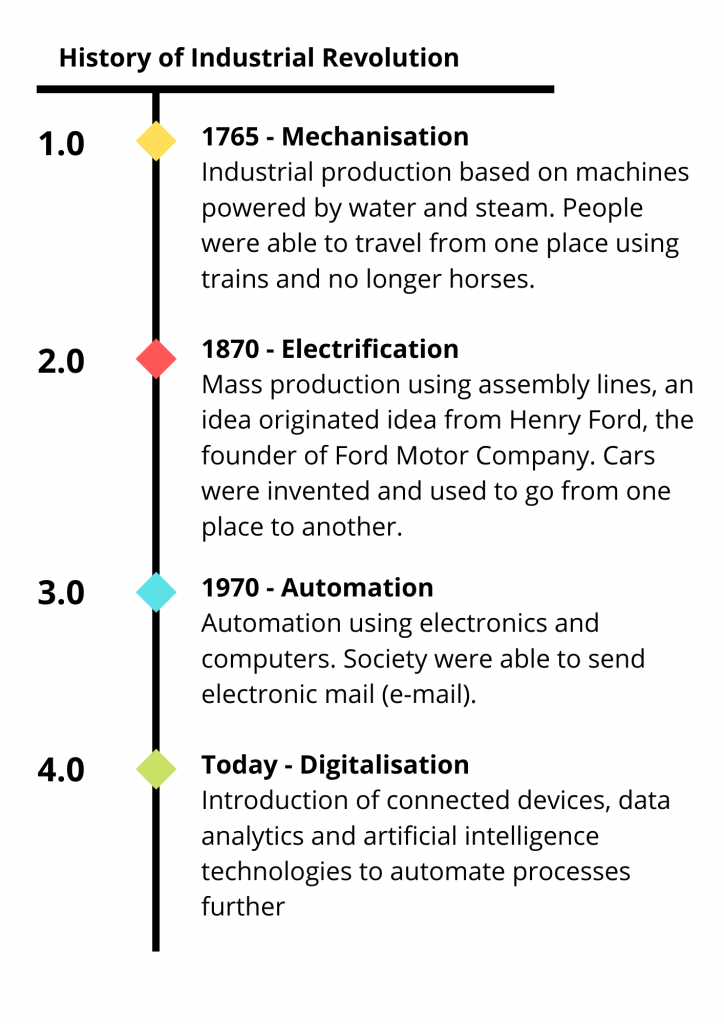
To understand the idea of industrial revolution, we need to go way deeper back into history. Let’s start with Industrial Revolution 1.0
Industrial Revolution (IR) 1.0- The Steam Engine, Mechanical Production
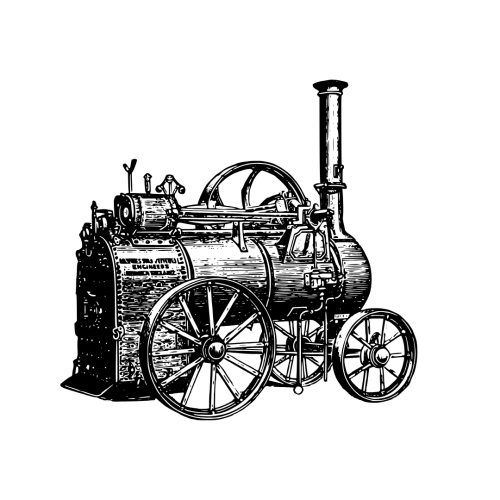
The First Industrial Revolution began in the 18th century through the use of steam power (picture above) and mechanisation of production. What before produced threads in simple spinning wheels, the mechanised version achieved 8 times the volume in the same time. Steam power was used for industrial purposes and it was the greatest breakthrough for increasing human productivity. The steam-powered locomotive is able to transport humans to move great distances in fewer hours. This allowed people to move faster without relying on horses.
Major Inventions:
- Spinning Jenny: an engine for spinning wool or cotton invented by James Hargreaves
- Steam engine: an engine that used hot steam from boiling water to drive a piston back and forth. This engine was heavily used on railroads to transport people from one place to another
Industrial Revolution (IR) 2.0- Electricity, Mass Production

The Second Industrial Revolution started in the 19th century through the discovery of electricity and assembly line production. Henry Ford, the founder of Ford Motor Company, took the idea of mass production from a slaughterhouse in Chicago where the pigs hung from conveyor belts and each butcher performed only a part of the task of butchering the animal. Mr.Ford used these principles into automobile production and drastically altered it in the process which were significantly faster and at lower cost. Therefore, allowing the society to mobilize easily.
Major Inventions:
- Telephone was invented by Alexander Graham Bell during the Industrial Revolution 2.0
- Typewriters were invented and it helped the people to mass produce writing
Industrial Revolution (IR) 3.0- Internet, Computer, Automated Production

The Third Industrial Revolution began in the 1960s in the 20th century through partial automation using memory-programmable controls and computers which lead to automation an entire production and thus, human assistance is not required. This phase involved Information Technology (IT) and electronics to further automation in production.Not only that, this is the first computer era where computers used to be simple, unwieldy and incredibly large relative to the computing power they were able to provide. However, they laid the groundwork for a world today. This phase involved Information Technology (IT) and electronics to further automation in production.
Major Inventions:
- Email was invented in this industrial phase
- These are called floppy disks where data was stored and saved
Industrial Revolution (IR) 4.0- Cyber-Physical System, Technology Merging with Human Lives
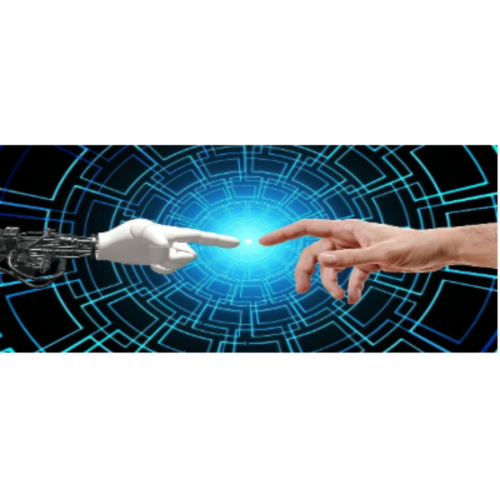
This phase is the boom in the internet and telecommunication industry in the 1990’s. The Industrial Revolution 4.0 is a fusion of technologies that blur the lines between the physical, digital and biological spheres, making it different from the previous IR 3.0.
Billions of people get connected around the globe by mobile devices, with unprecedented processing power and storage capacity. This will be even more and multiplied by the emerging technology breakthroughs in fields such as artificial intelligence, robotics,autonomous vehicles and 3-D printings.
How is the Industrial Revolution Shaping the Future Employments?
As we are now in Industrial Revolution 4.0, it is crucial for you to take the correct education pathways to stay competitive in the working market upon graduation. Based on World Economic Forum, jobs that will be on demand and against the possibility of unemployment in the future are:
- Computer & Technology
- Robotics & Mechatronic Engineering
- Biotechnology
- Business Management & Financial Operation
These are the jobs that are still relevant and demanding in the future years and robots will not be replacing them anytime soon. Let us see the recommended university in Australia for respective fields.
Computer & Technology
Computer and Technology are the foundation and components that enable modern computing. The industry is emerging and expanding over the years. If you have the goal to develop software, design mobile phone apps or create digital effects for films, this is the best education course you can study. There are many fields in computer and technology such as:
- Computer science: The study of principles and use of computers. Computer scientists deal mostly with software and software systems including theories and application. But bear in mind, there is a difference between Computer Science and Information Technology
- Data science: This field is related to data mining and big data. Data scientists will analyze, extract and interpret the data meanings.
- Cybersecurity: The field that specialize in protecting networks, companies and individuals from hackers and attacks. This is the defense against cybercrimes.
Top 3 recommended universities to study Computer & Technology in Australia:
1. University of Technology Sydney (UTS)

Program | Bachelor of Computing Science |
Intake | February & July |
Annual Indicative Fees | AUD$ 42,720 |
For enquiries on entry requirements and application process, contact us 😃
2. Edith Cowan University (ECU)

Program | Bachelor of Science (Cyber Security) |
Intake | February & July |
Annual Indicative Fees | AUD$ 32,650 |
For enquiries on entry requirements and application process, contact us 😃
3. Western Sydney University
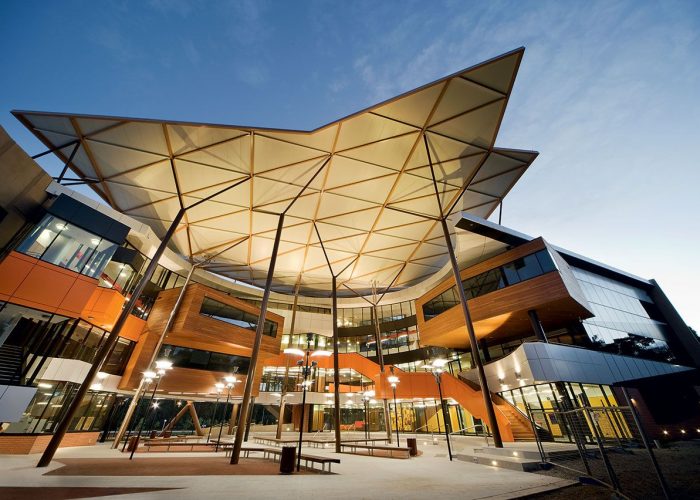
Program | Bachelor of Data Science |
Intake | March |
Annual Indicative Fees | AUD$ 30,840 |
For enquiries on entry requirements and application process, contact us 😃
The world is becoming more and more automated as robots are included in everything we do. From Siri in iPhone Apple, Alexa in Google to the robots used in production factories. Restaurants like Spyce are the very first restaurant where robots are used to cook complex dishes. Who knows, engineers could be designing and making it possible for robotic kitchens to be a new normal in every household in the future.
So you need to ensure you are equipped with the knowledge by taking this course for your education. Robotics is one of the many part in Mechatronics and the top 3 recommended universities to pursue your education are:
Top Universities to Study Robotics in Australia:
1. University of Technology Sydney

Program | Bachelor of Engineering (Honours) (Major in Mechatronics) |
Intake | March & July |
Annual Indicative Fees | AUD$ 44,496.00 |
For enquiries on entry requirements and application process, contact us 😃
2. Monash University

Program | Bachelor of Engineering (Honours) (Specialization in Robotics and Mechatronics Engineering) |
Intake | February & July |
Annual Indicative Fees | AUD$ 46,000 |
For enquiries on entry requirements and application process, contact us 😃
3. Griffith University

Program | Bachelor of Engineering (Honours) (Majors in Mechatronics) |
Intake | February & June |
Annual Indicative Fees | AUD$ 35,500 |
For enquiries on entry requirements and application process, contact us 😃
This field is using biological systems or living organisms to make technological advances and the applications of biotechnology can vary from agricultural practices to medical sectors. Another example is biotechnologists around the world are working hard around the clock to find the cure for Covid-19 virus. Below are the prestigious universities in the world of biotechnology.
Top Universities to Study Biotechnology in Australia:
1. The University of Queensland
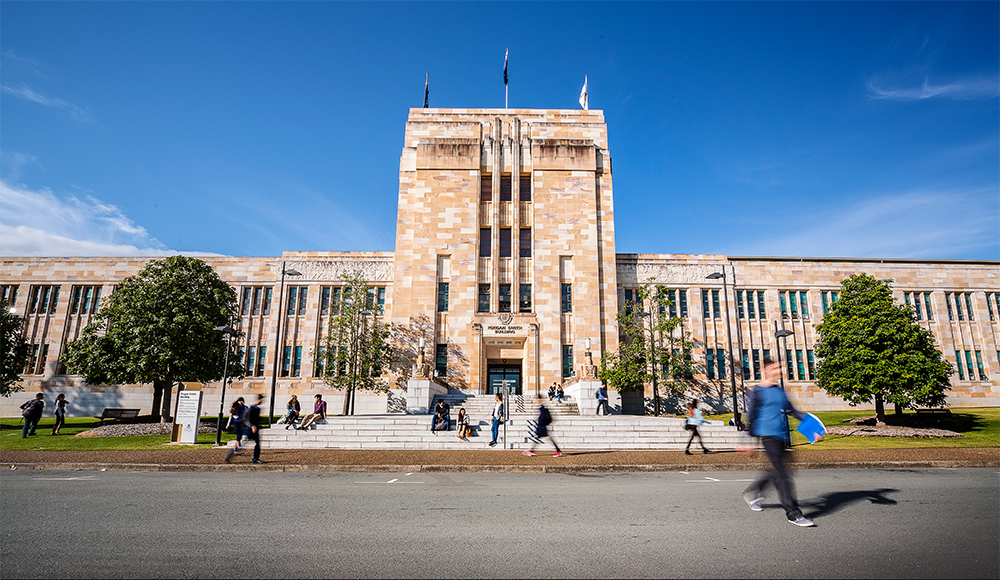
Program | Bachelor of Biotechnology |
Intake | February & July |
Annual Indicative Fees | AUD$ 43,504 |
For enquiries on entry requirements and application process, contact us 😃
2. University of New South Wales (UNSW)

Program | Bachelor of Biotechnology |
Intake | February & September |
Annual Indicative Fees | AUD$ 47,760 |
For enquiries on entry requirements and application process, contact us 😃
3. University of Technology Sydney

Program | Bachelor of Biotechnology |
Intake | March & July |
Annual Indicative Fees | AUD$ 39,552 |
For enquiries on entry requirements and application process, contact us 😃
Business Management & Financial Operation
As we are shifting gears towards a faster and digital world, businesses are also changing their operations. Before we only used cash in paying our foods but now, we either pay using cash, cards or even apps while collecting points and rewards. The business world is definitely changing and impacted by technology.
One example is Fintech. Financial Technology for long, is a computer program and other technology are used to support financial and banking services such as mobile payments apps and cryptocurrency. That is why more universities are incorporating their business degree with information technology and systems. This is to help students get the edge and competitive advantage when they graduate.
Top Universities to Study Business Management & Financial Operation in Australia:
1. University of New South Wales (UNSW)
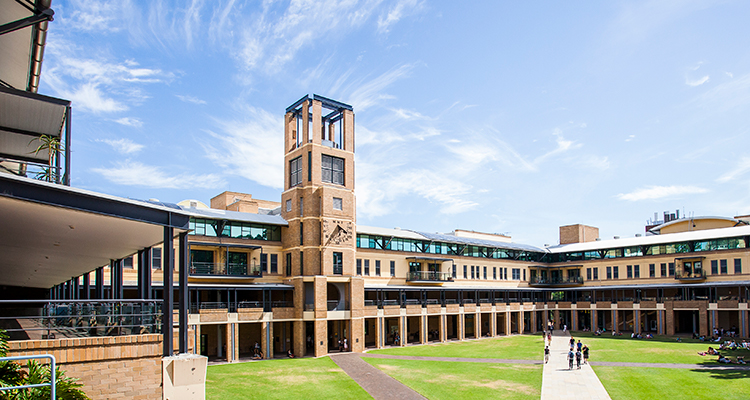
Program | Bachelor of Economics (Major in Financial Technology) |
Intake | February, June & September |
Annual Indicative Fees | AUD$ 44,880 |
For enquiries on entry requirements and application process, contact us 😃
2. University Technology of Sydney (UTS)

Program | Bachelor of Information Systems Bachelor of Business |
Intake | February & July |
Annual Indicative Fees | AUD$ 42,740 |
For enquiries on entry requirements and application process, contact us 😃
3.Royal Melbourne Institute of Technology (RMIT)

Program | Bachelor of Business (Information Systems) |
Intake | February & July |
Annual Indicative Fees | AUD$ 34,560 |
For enquiries on entry requirements and application process, contact us 😃
Did you find this helpful? If so Give us some Feedback! We are always finding news ways to improve. If you want to know more or ask us a question, please feel free to contact us any time!
Contact us to find out more
International Student enquiries:
Phone:+60182414802
Email: [email protected]
For more stories like this, join the Excel Education community on Facebook
Need help with your uni application? Connect with us here

Stephanie Calamba
Part time ACCA student, part time content writer but full time child of God.

